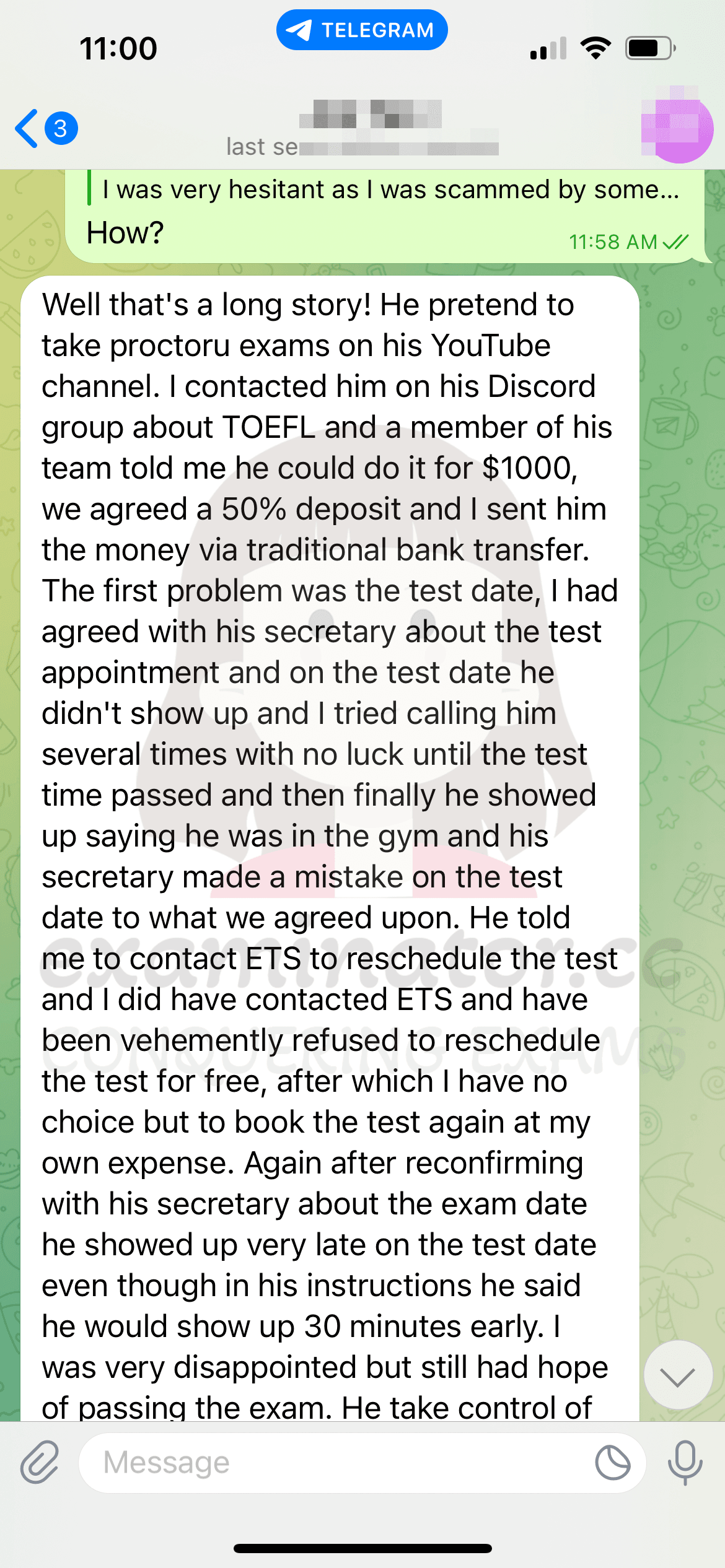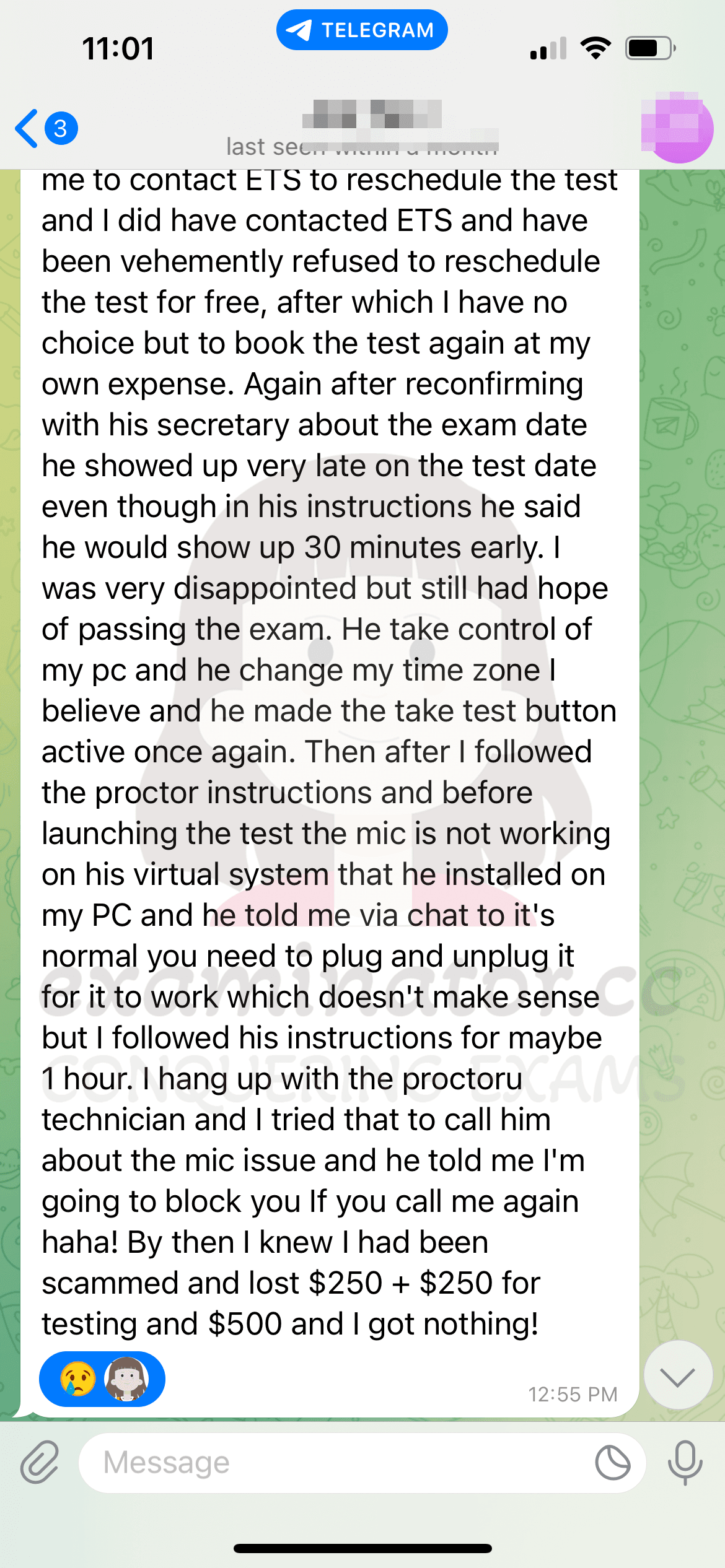Always bear in mind that opting for a cheaper alternative proxy testing service provider leads to subpar results or, even worse, scams.
The following tale serves as a stark reminder of such a scenario, as narrated by a customer who underwent an unfortunate experience.
This is not the first time someone has complained to us about getting scammed by this particular exam proxy service provider.

Our story begins with a student seeking assistance for their TOEFL exam. They discovered a YouTube channel run by someone, named, let's call him 'X', which pledged to provide proxy exam services. Intrigued by the prospect of professional support, they decided to engage with X's Discord group.
During initial conversations, a team member from the Discord group proposed to take the TOEFL exam on the student's behalf for a $1000 fee. Assured by the seemingly professional demeanor, the student readily transferred a 50% deposit via a traditional bank transfer. At this point, everything seemed to be on track.
However, the first red flag emerged during the scheduling of the exam date. Despite confirming the date with X's secretary, the student found themselves stranded on the day of the test. Despite multiple attempts, they couldn't reach X until after the exam time had passed. When he finally appeared, he blamed his absence on a miscommunication with his secretary and a visit to the gym.
Though disheartened, the student tried to salvage the situation. They contacted ETS to reschedule the test, but their request was denied. With no other alternatives, the student had to book the test again, shouldering the additional expense.
Upon reconfirmation of the test date with X's secretary, the student hoped for a different outcome. However, despite assurances that he would arrive 30 minutes early, he was late once again. When he finally showed up, he commandeered the student's PC, adjusted the time zone, and activated the 'take test' button.
Just when the student thought things couldn't get worse, they encountered a technical issue. The microphone on the virtual system installed by X malfunctioned. He suggested a bizarre solution: to plug and unplug the microphone repeatedly. An hour of futile effort later, the student realized they were stuck.
In a final attempt to resolve the issue, the student contacted X, only to be threatened with being blocked if they dared to call again. The realization hit hard – they had been scammed. They had incurred a loss of $1000, including the testing fees and the deposit, without any tangible outcome.
'This guy has no sense of morality,' the student lamented.
This unfortunate experience serves as a potent reminder that seemingly cheaper alternatives can often turn out to be costly mistakes.


![[代考保分动态]成功案例#348的对话截图](/_next/image?url=https%3A%2F%2Fstatic.examinator.cc%2Fmedia%2Fpostimages%2Fscammed-by-xeno-4.png&w=3840&q=75&dpl=dpl_8LjNtt4QeJxLMgupykeoVBzEPHCo)
![[代考保分动态]成功案例#348的对话截图](/_next/image?url=https%3A%2F%2Fstatic.examinator.cc%2Fmedia%2Fpostimages%2Fscammed-by-xeno-5.png&w=3840&q=75&dpl=dpl_8LjNtt4QeJxLMgupykeoVBzEPHCo)